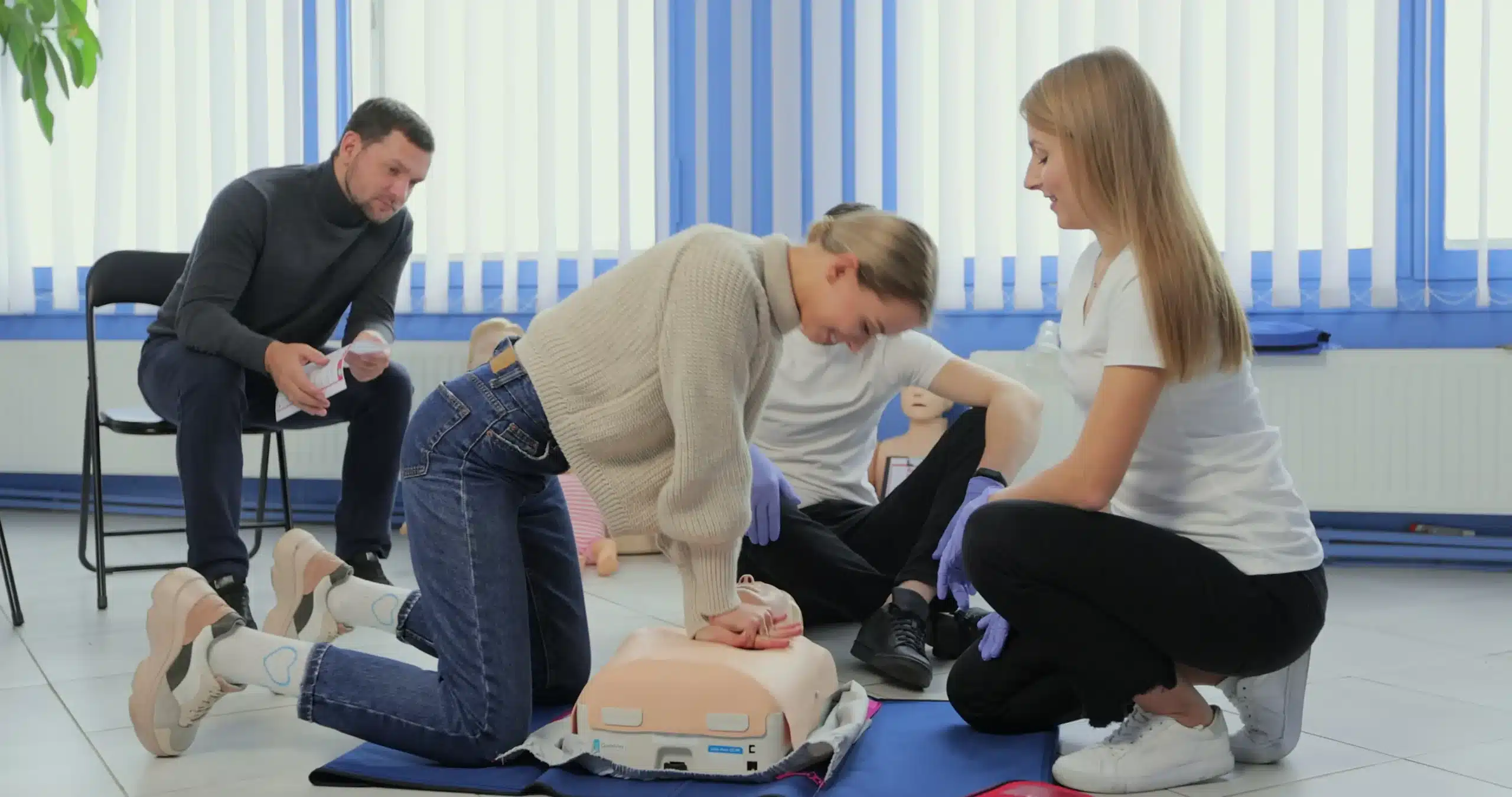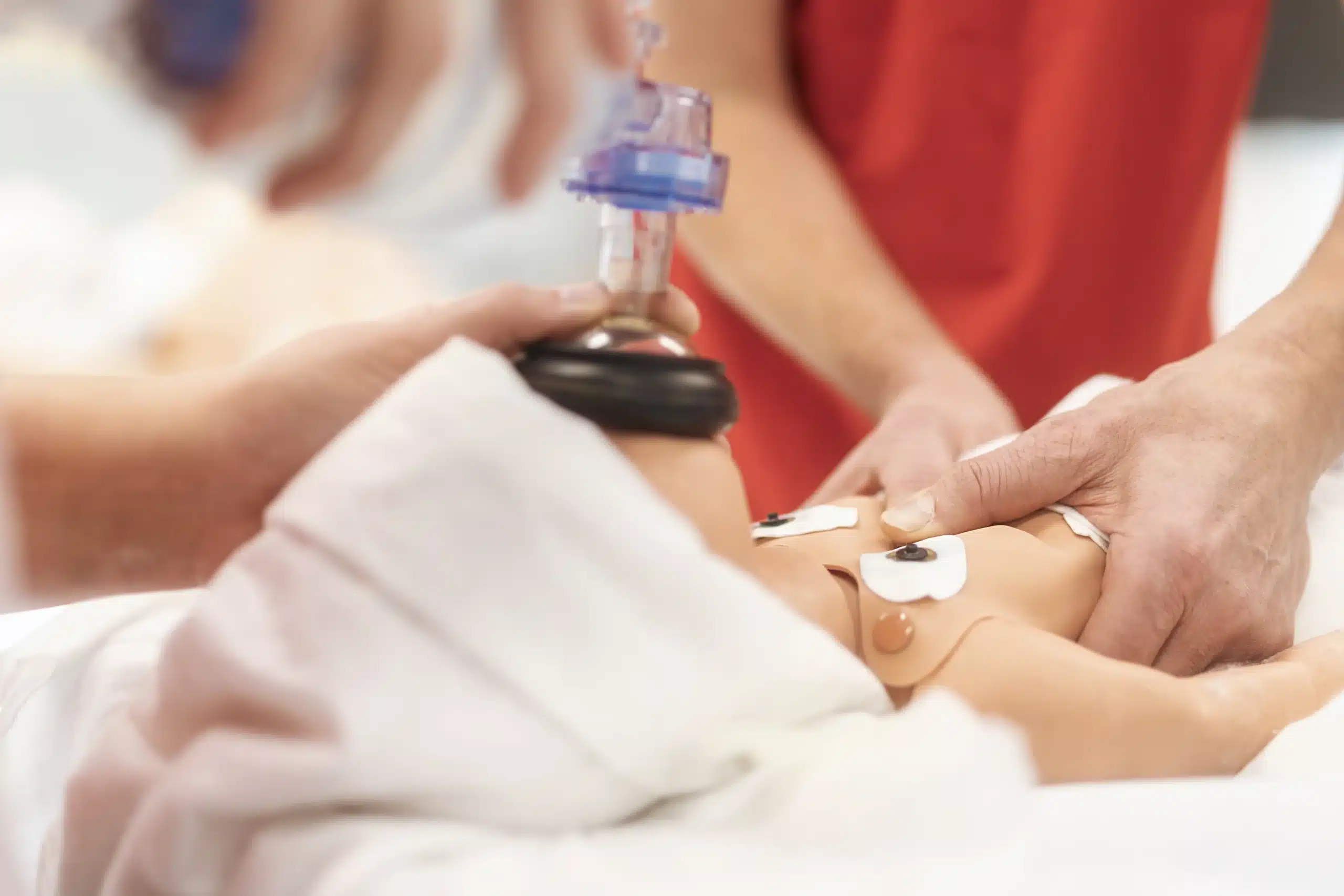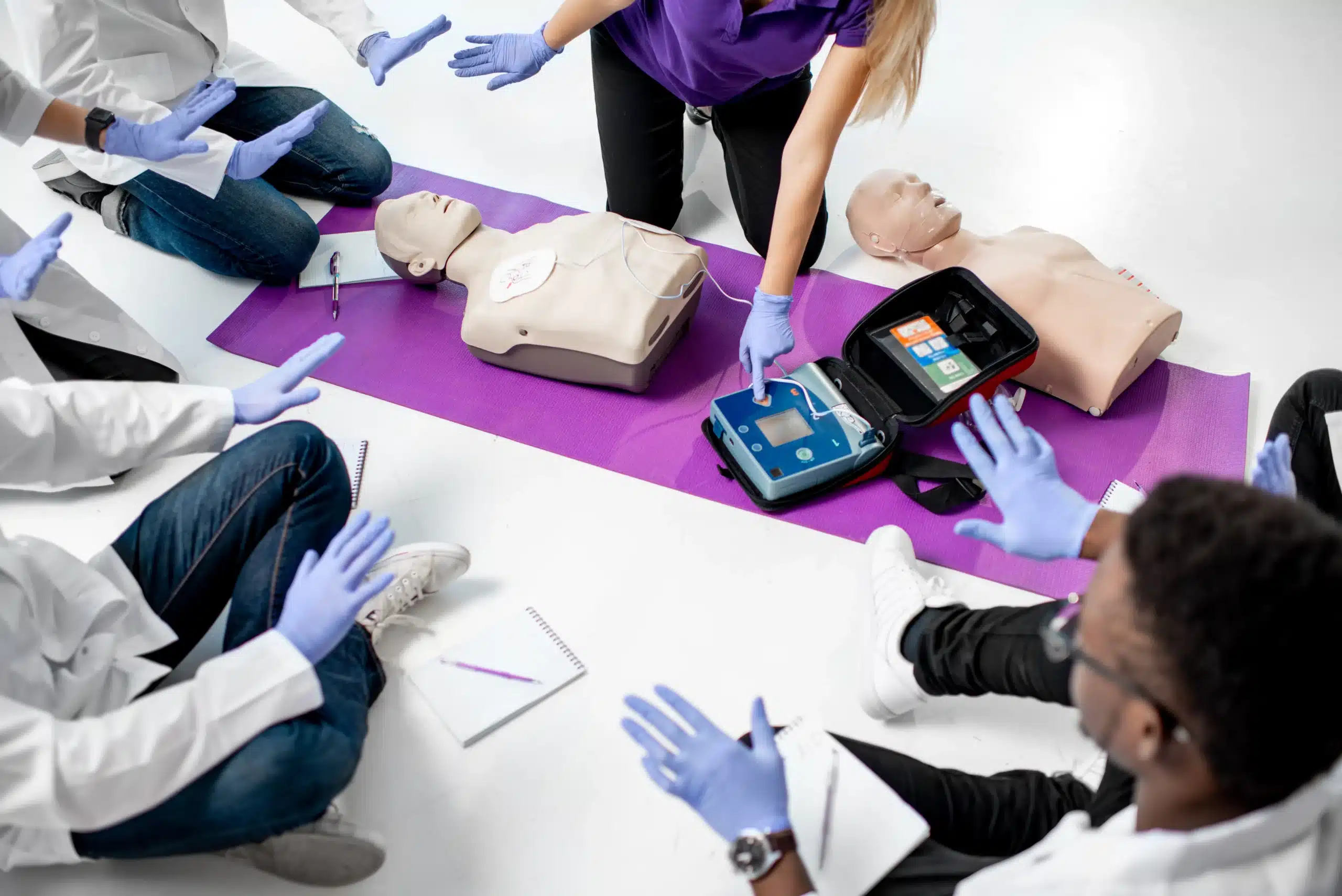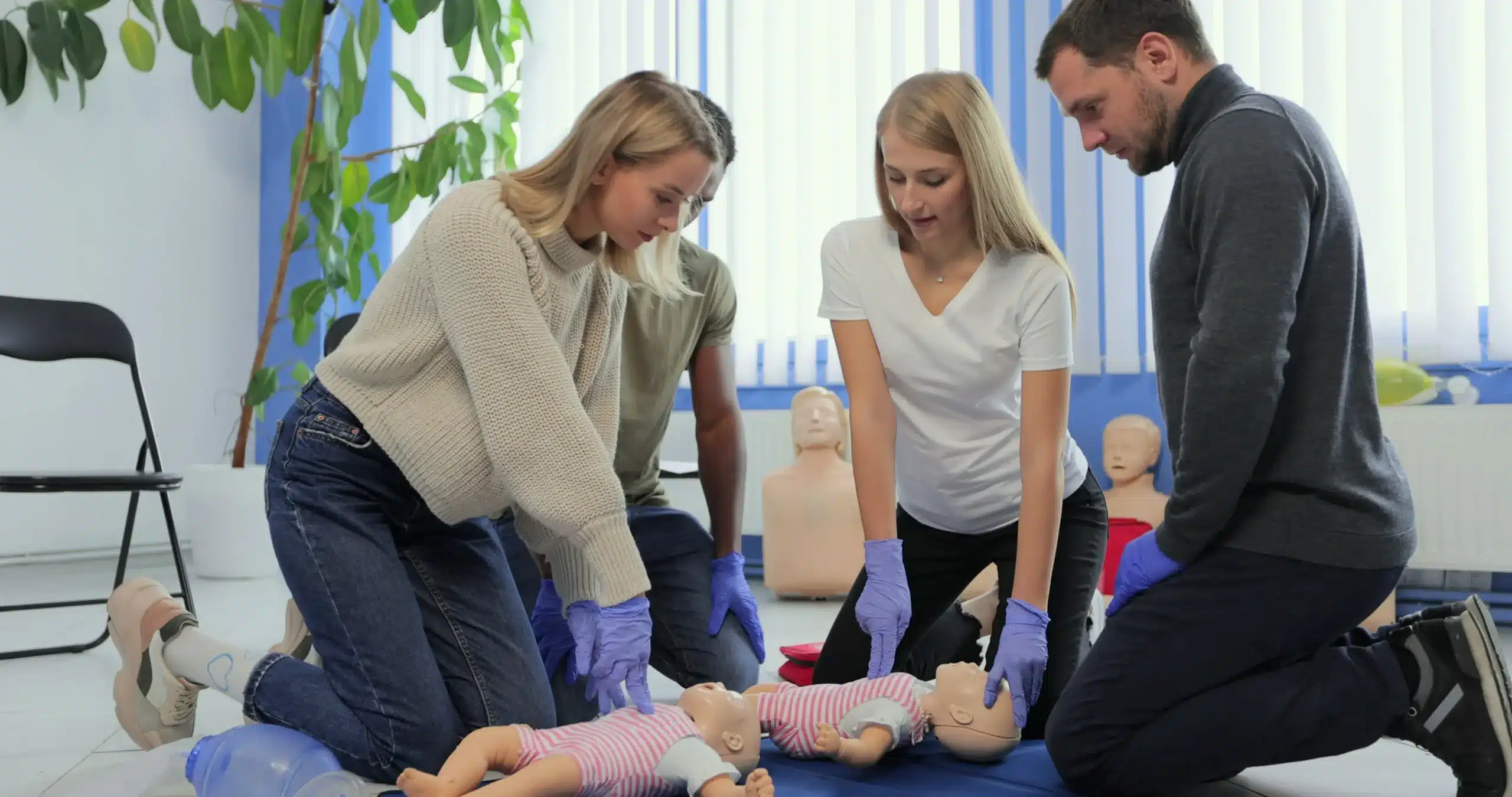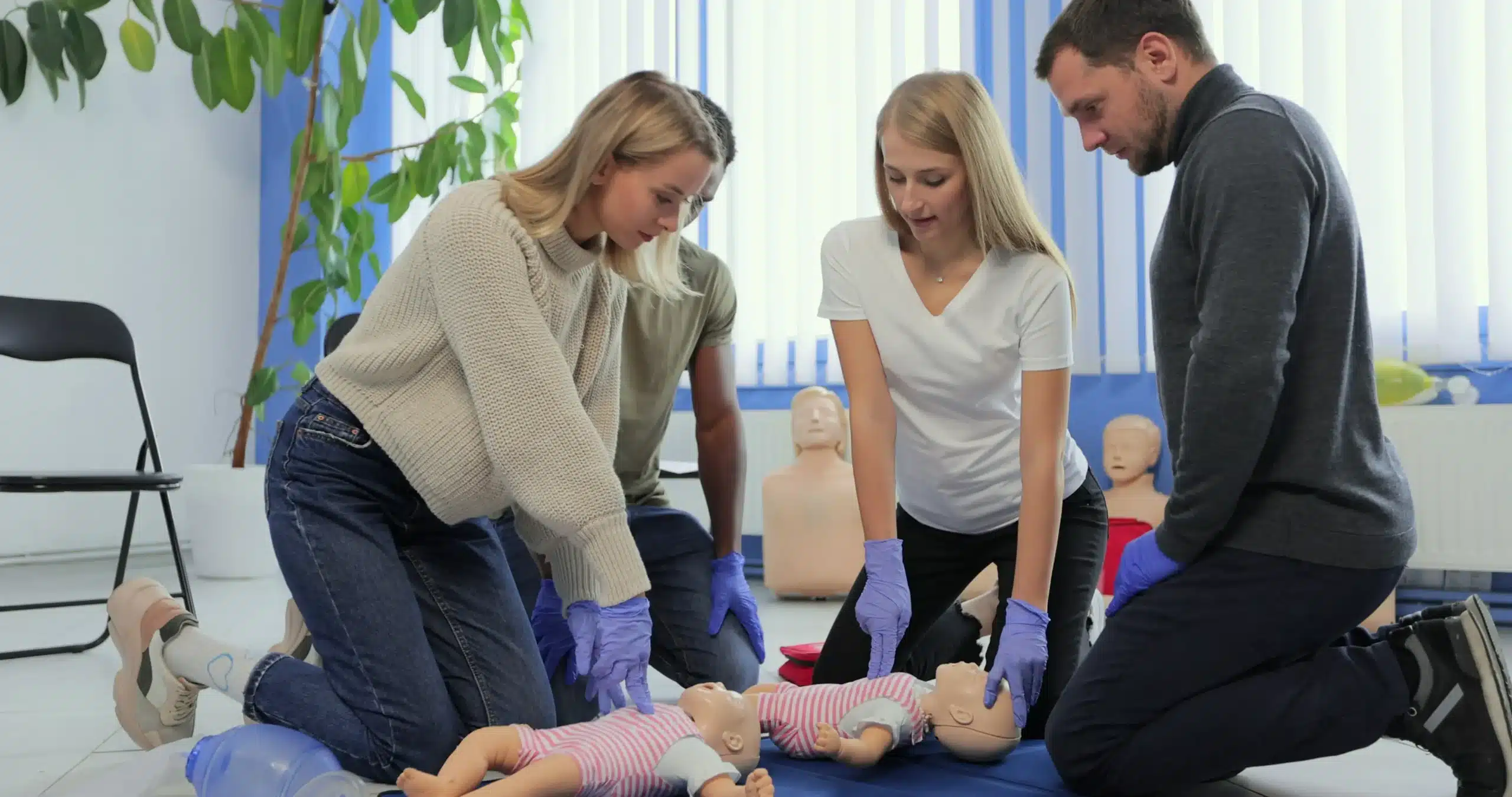Working with infants and children brings unique joys and responsibilities, especially in healthcare. When a child’s life is on the line, you need more than basic life support—you need specialized training. Pediatric Advanced Life Support (PALS) certification empowers healthcare professionals to handle pediatric emergencies with confidence and skill. This article explores the ins and outs of American Heart Association PALS in Oakland – Piedmont, covering everything from course content and registration to renewal requirements and career benefits. Whether you’re a seasoned healthcare provider or just starting your journey, understanding the value of PALS certification is crucial for providing the best possible care to your young patients.
Key Takeaways
- PALS certification equips you with essential skills: This specialized training provides healthcare providers with the knowledge and practical skills to confidently manage pediatric emergencies, from basic life support to advanced interventions. Consider your learning style and schedule when choosing between in-person, online, or blended learning formats.
- Select a reputable PALS provider: Look for providers offering AHA-compliant courses, experienced instructors, and convenient locations. Inquire about course content, hands-on practice opportunities, and post-certification support to ensure you’re getting the most out of your training.
- Stay current with your PALS certification: Renew your credentials every two years and engage in continuing education activities to maintain your proficiency in pediatric advanced life support. This ongoing commitment ensures you’re always prepared to deliver the best possible care in emergencies.
What is PALS Certification?
Pediatric Advanced Life Support (PALS) certification is a specialized program designed to equip healthcare providers with the skills to manage pediatric emergencies. It’s the gold standard for recognizing and responding to life-threatening situations in infants and children. Think of it as advanced training that builds upon the foundation of basic life support. PALS focuses on the critical steps needed to stabilize a child in distress and improve their chances of survival.
Key PALS Skills
PALS courses cover a wide range of crucial skills, from airway management and effective ventilation techniques to recognizing and treating cardiac arrest rhythms. You’ll learn how to administer medications appropriately and understand the specific physiological differences between children and adults. This specialized knowledge is key to providing effective care during a pediatric emergency. Safety Training Seminars offers comprehensive PALS training that covers all these essential skills. We also emphasize the importance of teamwork and communication in high-pressure situations, ensuring you’re prepared to work effectively as part of a coordinated response team. For more information on PALS courses, check out our American Heart Association PALS page.
Why Healthcare Professionals Need PALS
For any healthcare professional regularly interacting with infants and children, PALS certification isn’t just recommended—it’s often essential. Whether you’re a physician, nurse, paramedic, or respiratory therapist, having these advanced skills can significantly impact patient outcomes. PALS certification demonstrates a commitment to providing the highest quality of care and equips you with the confidence to handle critical situations effectively. It allows you to quickly assess, stabilize, and manage pediatric emergencies, ultimately increasing the chances of a positive outcome for your young patients. If you’re looking for PALS training in Oakland, consider our PALS certification courses.
PALS Certification Courses in Oakland & Piedmont
Safety Training Seminars offers a variety of PALS certification courses to fit your schedule and learning preferences. Whether you prefer hands-on classroom learning or a flexible online format, we have a PALS course for you. We’re proud to serve healthcare providers in Oakland, Piedmont, and nearby areas, including Alameda and Berkeley.
In-Person PALS Training
Our in-person PALS training provides a structured learning environment ideal for hands-on practice and direct interaction with experienced instructors. Held at our convenient Piedmont and Fruitvale locations, these courses cover the essential concepts and skills needed for pediatric emergency care. You’ll work alongside other healthcare professionals, practice real-world scenarios, and receive personalized feedback to boost your confidence. Learn more about our in-person PALS training.
Online & Hybrid PALS Courses
For those seeking a more flexible option, we offer online and hybrid PALS courses. Our online PALS course lets you complete the coursework at your own pace, wherever you have internet access. The hybrid option combines online learning with in-person skills practice and testing. This blended format ensures you gain both the knowledge and practical skills required for effective pediatric advanced life support. See if our hybrid PALS course is the right choice for you.
Course Duration & Content
PALS certification courses equip healthcare providers with the skills to confidently manage pediatric emergencies. Initial PALS certification typically takes about 10 hours, while renewal courses are approximately 6 hours. Our hybrid PALS course offers a streamlined approach. The online portion requires 2–4 hours, followed by a short 15–30 minute in-person skills check. No matter the format, our PALS courses cover essential topics such as child CPR, airway management, and treatment of cardiac arrhythmias.
Find the Right PALS Provider
Choosing the right PALS provider is crucial for a positive and effective learning experience. Here’s a breakdown of the types of providers offering PALS courses and what to consider when making your decision.
Safety Training Seminars
Companies like Safety Training Seminars specialize in providing a range of AHA-certified courses, including PALS. Often, these organizations focus on delivering convenient and affordable training options. Safety Training Seminars, for example, offers PALS courses in Oakland and over 60 other cities, with a focus on excellent customer service and low prices. Their streamlined approach can be particularly helpful for those seeking a fast and efficient path to certification. Consider factors like class size, location accessibility, and instructor experience when evaluating these providers. Discounts may also be available for groups.
AHA Training Centers
AHA Training Centers are authorized providers directly affiliated with the American Heart Association. These centers often offer a comprehensive range of AHA courses, ensuring adherence to the latest guidelines and standards. They are a reliable choice for those seeking a standardized and high-quality PALS learning experience. Look for Training Centers that offer various course formats, such as in-person, blended learning, or online options, to suit your individual learning preferences.
Hospitals & Medical Centers
Many hospitals and medical centers provide PALS training, often integrated into their professional development programs for healthcare providers. These courses may offer a more clinical focus, incorporating real-world scenarios and simulations relevant to hospital settings. If you’re a healthcare professional working in a hospital, pursuing PALS training through your institution can be a convenient and practical option. It also allows for networking and collaboration with colleagues.
Colleges & Universities
Some colleges and universities offer PALS certification courses as part of their healthcare and nursing programs. These courses are typically designed for students pursuing healthcare careers but may also be open to other healthcare professionals seeking certification. University-based PALS courses often provide a strong academic foundation and access to advanced simulation facilities. If you’re a student or affiliated with a university, explore their course offerings for a potentially enriching learning experience.
PALS Certification: Cost & Value
So, you’re ready to advance your lifesaving skills with Pediatric Advanced Life Support (PALS) certification? Great! Now, let’s talk about the investment. Understanding PALS course costs and the long-term value can help you make informed decisions about your training.
Pricing
PALS certification costs vary depending on the training center, location, and course format (in-person, blended learning, or online). Initial PALS courses typically range from $200 to $300, while renewal courses are usually less expensive, often between $150 and $200. Remember that prices can change, so it’s always a good idea to check directly with the provider for the most up-to-date pricing. For example, some providers offer the PALS certification course at a competitive price that includes online learning, skills testing, and your certification card.
Discounts & Promotions
Looking to save on your PALS training? Many providers offer discounts for group registrations, students, or returning customers. Be sure to ask about potential discounts when you inquire about courses. Some organizations, like Safety Training Seminars, offer a low price guarantee and group discounts to make training more accessible. Keep an eye out for special promotions or seasonal offers, too.
Career ROI
While there’s an upfront cost for PALS certification, consider it an investment in your healthcare career. These certifications are recognized worldwide and demonstrate your commitment to providing high-quality patient care. AHA certifications like PALS can open doors to better job opportunities, career advancement, and even higher earning potential. The skills you gain will empower you to confidently respond to pediatric emergencies, making a real difference in patient outcomes. That’s a powerful return on investment.
Get PALS Certified
So, you’re ready to get PALS certified? Great! This section breaks down the process into easy-to-follow steps. We’ll cover everything from registering for a course to prepping for the exam and receiving your certification card.
Registration
Finding the right PALS training provider is the first step. Look for a provider that offers courses convenient to you. Safety Training Seminars, for example, offers PALS courses in Oakland and over 60 other cities, making it easy to find a class nearby. Check their website or give them a call to see available dates and register. Many providers also offer online registration.
Course Prep
Once registered, it’s time to prepare. PALS courses are designed to be interactive and hands-on, often using simulations and real-life scenarios. Take some time to familiarize yourself with the PALS course materials beforehand. Reviewing PALS algorithms and megacodes can also build your confidence going into the course. Think of it like studying for any important test—the better prepared you are, the more you’ll gain from the experience.
Exams & Certification
The PALS certification exam typically happens at the end of the course. It assesses your knowledge and skills in pediatric advanced life support. The American Heart Association (AHA) offers a comprehensive PALS certification course, which includes the online course, skills testing, and your certification card. After successfully completing the course and exam, you’ll receive your AHA PALS Provider card, often digitally, valid for two years. This card shows your proficiency in PALS and is essential for many healthcare roles.
Your PALS Training Experience
Getting ready for your PALS certification? Understanding what to expect can help you prepare and make the most of the course. The training blends hands-on practice, realistic simulations, and team-focused learning, creating a dynamic environment to build your confidence in pediatric emergency care.
Hands-On Skills
PALS courses go beyond lectures and textbooks. They emphasize hands-on learning, giving you the chance to practice essential skills in a safe environment. You’ll work with medical equipment, practice airway management techniques, and perform simulated resuscitation scenarios. This practical experience is key for putting your knowledge into action during real pediatric emergencies. Oakland CPR courses explain how PALS training builds confidence in handling critical situations involving infants and children.
Emergency Simulations
PALS training also uses emergency simulations that mirror real-world scenarios. These simulations challenge you to apply your knowledge and skills under pressure, working through complex cases and making quick decisions. Realistic simulations help you develop the confidence to respond effectively in actual emergencies, promoting quick thinking and decisive action.
Team Dynamics
PALS emphasizes teamwork in pediatric advanced life support. You’ll learn to communicate and collaborate within a team, coordinating roles and responsibilities to provide seamless care. Understanding team dynamics is crucial, as it can significantly impact patient outcomes in emergencies. Evolving PALS guidelines reflect the importance of coordinated team efforts in providing optimal pediatric care.
Maintain Your PALS Certification
Keeping your PALS skills sharp is crucial for providing the best possible care to young patients. This section covers how to maintain your PALS certification and stay up-to-date with the latest advancements in pediatric advanced life support.
Renewal Requirements
PALS certification is typically valid for two years. To stay certified, you’ll need to renew your credentials before they expire. This usually involves completing a PALS renewal course, which covers essential skills and knowledge. Check with your certifying organization or employer for specific renewal requirements and deadlines. Staying current with your certification ensures you’re prepared to handle pediatric emergencies effectively.
Continuing Education
Even after you’re certified, continuing education is key to maintaining proficiency in pediatric advanced life support. Regularly reviewing PALS protocols and best practices helps you stay informed about the latest advancements in the field. Consider attending workshops, conferences, or online courses to expand your knowledge and refine your skills. This ongoing commitment to learning not only benefits your professional development but also improves patient outcomes in pediatric emergencies. The FAF CPR website highlights the importance of PALS certification for healthcare professionals. For more details on PALS training and its impact, you can review this helpful resource.
Choose the Right PALS Course
Finding the right PALS course is crucial for healthcare providers. It’s not just about getting certified—it’s about gaining the confidence and skills to handle pediatric emergencies. Here’s what to consider:
Factors to Consider
First, course accreditation and quality are paramount. Look for courses that adhere to the latest American Heart Association guidelines and are taught by certified instructors. This ensures you receive high-quality training that meets industry standards. Safety Training Seminars offers AHA-compliant PALS courses. Second, consider the course format and flexibility. Do you prefer in-person, online, or a blended learning experience? Think about your learning style and schedule. Some providers offer online PALS certification for added convenience. ACLS Now is one example. Finally, consider renewal and continuing education. PALS certification typically expires after two years, so factor in how you’ll maintain your credentials. GEAR UP with CPR offers helpful information on PALS renewal.
Questions to Ask
Before committing to a PALS course, ask a few key questions. Start with the course content and structure. Does the curriculum cover the essential skills outlined by the AHA? GEAR UP with CPR details PALS course content, so you can see if it aligns with your needs. Next, ask about hands-on practice opportunities. Simulations and real-life scenarios are vital for developing practical skills and confidence. Illinois Safety discusses the importance of this hands-on training. Lastly, find out what support resources are available after the course. Ongoing learning and access to updated materials can be invaluable. HealthStream is one provider that offers post-certification support. By considering these factors and asking the right questions, you can find the perfect PALS course to advance your career and enhance your patient care skills.
PALS Providers in Oakland & Piedmont
Finding the right PALS course is crucial for healthcare providers needing this specialized training. Several organizations offer PALS certification in the Oakland and Piedmont area, each with its own approach. Here’s a look at some of your options:
Safety Training Seminars
Safety Training Seminars offers AHA-certified PALS courses in Oakland, with convenient locations in both Piedmont and Fruitvale. They also provide other certifications, including BLS, ACLS, and First Aid, making them a convenient option for various life support training needs. Visit their website for course schedules and pricing.
Oakland CPR Classes
Oakland CPR Classes, offered through Safety Training Seminars, focuses on providing high-quality PALS certification from the American Heart Association. Their training emphasizes practical skills for pediatric emergencies, from airway management to resuscitation techniques.
ACLS Medical Training
ACLS Medical Training has a fully online PALS certification course. This format works well for busy professionals needing schedule flexibility. Their online platform lets you learn at your own pace while still covering the essential AHA guidelines.
ProMed Certifications
ProMed Certifications provides various PALS training options, including online courses. Similar to ACLS Medical Training, their online PALS courses offer self-paced learning aligned with the latest AHA guidelines. They may also have in-person training, so check their website for the best format for you.
HealthStream
While HealthStream offers a range of healthcare training, including a PALS course through the American Red Cross, this is not AHA-certified. The American Red Cross PALS program has different guidelines than the AHA version. If you need AHA certification specifically, choose a provider offering that curriculum.
PALS Certification FAQs
Here are some of the most frequently asked questions about PALS certification:
What is PALS Certification?
Pediatric Advanced Life Support (PALS) certification teaches healthcare providers how to respond to life-threatening emergencies in infants and children. It focuses on a systematic approach to pediatric assessment, basic life support, PALS treatment algorithms, effective resuscitation, and team dynamics. Learn more about the importance of PALS Certification for healthcare professionals.
How much does PALS Certification cost?
The cost of PALS certification varies depending on the training center and course format (online, in-person, or blended). Expect to pay around $290, which usually covers study materials, instruction, skills testing, and your certification card. PALS classes in Oakland are competitively priced, so check our website for current rates.
What is the duration of the PALS course?
PALS courses typically involve online learning and in-person skills sessions. The online portion can take two to four hours to complete. The in-person skills check and testing usually take a few hours. Renewal courses are generally shorter than initial certification courses. SureFire CPR offers more details on PALS course duration.
How long is the certification valid?
PALS certification is valid for two years. To maintain your credentials and stay current on the latest guidelines, renew your certification before it expires. You can find information on PALS renewal courses online.
Is there an online option for PALS Certification?
Yes, many providers offer online or blended learning options for PALS certification. These courses let you complete the cognitive portion of the training at your own pace, followed by an in-person skills check and testing session. Online PALS certification classes offer flexibility for busy professionals.
What challenges do healthcare providers face during PALS Certification?
One common challenge is finding the time to complete the training, especially with demanding schedules. Choose a course format and schedule that works for you. Learn more about the challenges healthcare workers face during PALS certification.
Related Articles
- Pediatric Advanced Life Support (PALS) in Oakland – Oakland CPR Classes
- BLS ACLS PALS Courses in Oakland: Your Complete Guide – Oakland CPR Classes
- PALS Classes in Oakland, CA – Oakland CPR Classes
- Online PALS Classes in Berkeley: Your Guide – Oakland CPR Classes
- PALS HeartCode Oakland: Your Certification Guide – Oakland CPR Classes
PALS Certification FAQs
What does PALS certification entail?
PALS certification involves learning a systematic approach to assessing and managing pediatric emergencies. It covers essential skills like CPR, airway management, and recognizing and treating cardiac arrhythmias in infants and children. The training combines online coursework with hands-on practice and culminates in a certification exam. For a deeper dive into PALS training, explore our PALS certification courses.
How can I find a PALS course near me?
Several organizations offer PALS certification, including Safety Training Seminars, which provides courses in Oakland and other locations. Hospitals, medical centers, and some colleges and universities also offer PALS training. When choosing a provider, consider factors like course accreditation, instructor experience, and the availability of different learning formats (in-person, online, or blended). Check out our PALS providers in Oakland & Piedmont section for local options.
What’s the difference between initial PALS certification and renewal?
Initial PALS certification courses are typically more extensive, covering the core concepts and skills in detail. Renewal courses are shorter, focusing on refreshing essential knowledge and skills for those already certified. Both involve a combination of online learning and in-person skills practice and testing. Explore our PALS Certification: Cost & Value section for more information.
How can I prepare for the PALS certification exam?
Preparation is key to success in the PALS certification exam. Familiarize yourself with the PALS provider manual and review key algorithms and treatment protocols. Practice your skills, especially those related to airway management, CPR, and vascular access. Consider taking a PALS prep course or using online resources to reinforce your learning. Our Get PALS Certified section offers helpful tips for preparing for the exam.
What are the benefits of getting PALS certified?
PALS certification demonstrates your commitment to providing high-quality care for infants and children. It enhances your skills and confidence in managing pediatric emergencies, potentially leading to better job opportunities and career advancement. PALS certification is often a requirement for healthcare professionals working in emergency departments, intensive care units, and other pediatric settings. Learn more about the importance of PALS certification for healthcare professionals.


